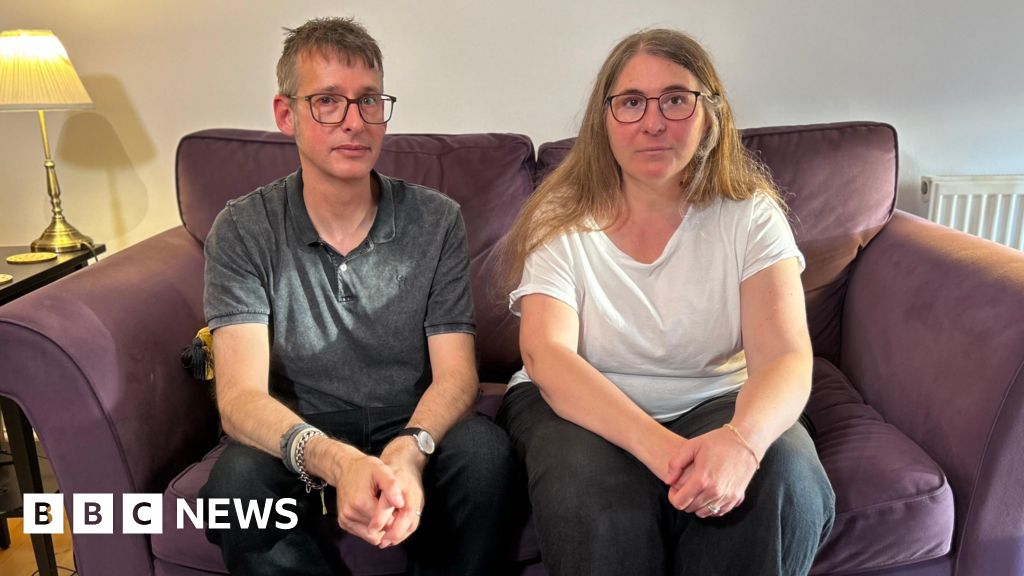ARTICLE AD BOX
 Image source, Getty Images
Image source, Getty Images
By Kevin Peachey
Cost of living correspondent
A significant fall in domestic energy bills in July will be confirmed later when the regulator sets the next price cap in England, Wales and Scotland.
Analysts predict Ofgem's decision will mean a £450 drop in a typical household's annual gas and electricity bill, to about £2,050.
It will mark the end of a government guarantee which, since October, has limited the typical bill to £2,500.
It could also signal the return of competition to the market.
Fixed deals have all-but disappeared as an option for customers, but there is a widespread expectation that people may again be able to shop around and switch to the supplier offering the best deal.
However, consumer groups have warned that might not be best for everyone, especially owing to uncertain future costs.
"We hope to see consumers back able to make some choices," said Emily Seymour, of consumer group Which? "However, it will depend on where energy prices go next."
Analysts predict the typical annual bill, if affected by the price cap, to remain at around the £2,000-a-year mark for the rest of the year. However, earlier this week, Qatar's energy minister warned the "worst is yet to come" for gas shortages in Europe, suggesting prices could rise again.
Ofgem's energy price cap sets the maximum price that can be charged per unit of gas and electricity to households on variable or default tariffs in England, Wales and Scotland.
Since October, it has been superseded by the government's Energy Price Guarantee, which meant a typical household's annual gas and electricity bill has been £2,500, but this will expire at the end of June. A £400 discount on everyone's energy bills, provided by the government during the winter, came to an end in April.
Although the typical bill will drop to about £2,000 a year in July, it will still be much higher than in the winter of 2021 when it stood at £1,277 a year.
Most households do not use a typical amount of gas and electricity. Bills are based on how much energy a household actually uses, which depends on the number of people, the type of property and its energy efficiency.
People who pay by direct debit will have to wait to see whether their supplier reduces the monthly demand, and should keep a close eye on any credit that may build up. Prepayment customers will have a cap set at the same level, but those who pay by cash, cheque or bank transfer, usually every three months, will have to pay more.
Energy is regulated separately in Northern Ireland, where bills will be held at £1,950 per year for an average household.
Commentators say that many households embraced the message of cutting back on energy use when bills were high last winter, sometimes by necessity and sometimes out of choice. They said, if that continued, it would help reduce domestic bills, especially if people used the summer to make changes.
Here are some energy saving ideas from environmental scientist Angela Terry, who set up One Home, a social enterprise that shares green, money-saving tips.
- Getting a water efficient shower head free of charge from your water company and using showers rather than baths
- Considering loft insulation, which she says costs around £460 for a typical semi-detached home and could save £355 a year on gas bills
- Hanging out washing instead of using a tumble dryer, and walk instead of drive when possible
- Use windy days to feel where draughts are in the house. Wetting the back of your hand helps to locate them, then use insulation or draught-proofing tape
- When available, press the smaller button to use less water to flush the toilet
Some people have taken the opportunity to upgrade homes, and habits, to manage their energy use to an even greater extent. When Tim Phillips moved into his home near Cambridge, he said it was "a nice surprise" that the newly-built property had solar panels on the roof.
It started a journey which now sees him use cheaper energy at night to charge a battery in his garage, as well as his electric car. That energy bank is then used to power his appliances during the day, when his variable tariff would have charged more.
Tim Phillips closely monitors his household energy use
An "energy brain" - a small computer in with the dustpan and brush in the downstairs cupboard - also helps to keep the costs down, by pulling any excess energy from the solar panels and using it to heat his water.
He keeps a close eye on his in-home display, which tells him when something is using up a lot of energy. That may be the oven, for good reason, but it may also be that an appliance has been left on unnecessarily.
"It is a system which makes me more acutely aware of what I am using," he says. "It gives you freedom, rather than being a slave to it."
Some of the kit involved comes from a Cambridgeshire-based business called Geo - which stands for Green Energy Options. Their argument is that far from being a house of the future, small pieces of technology such as a smart thermostat can only cost about £20 to £25 but cut energy bills by 20% or more.
It can automate simple actions such as switching off the heating when it senses nobody has been at home for some time. It has the potential to link to smart plugs, or voice assistants around the house.
Steve Cunningham, chief executive of Geo, said that energy management systems could bring hundreds of pounds of savings. "We're working hard to transform the value that smart meters deliver to homes across the country," he said.
What questions do you want answered on energy prices?
In some cases your question will be published, displaying your name, age and location as you provide it, unless you state otherwise. Your contact details will never be published. Please ensure you have read our terms & conditions and privacy policy.
If you are reading this page and can't see the form you will need to visit the mobile version of the BBC website to submit your question or send them via email to YourQuestions@bbc.co.uk. Please include your name, age and location with any question you send in.

 2 years ago
35
2 years ago
35








 English (US) ·
English (US) ·